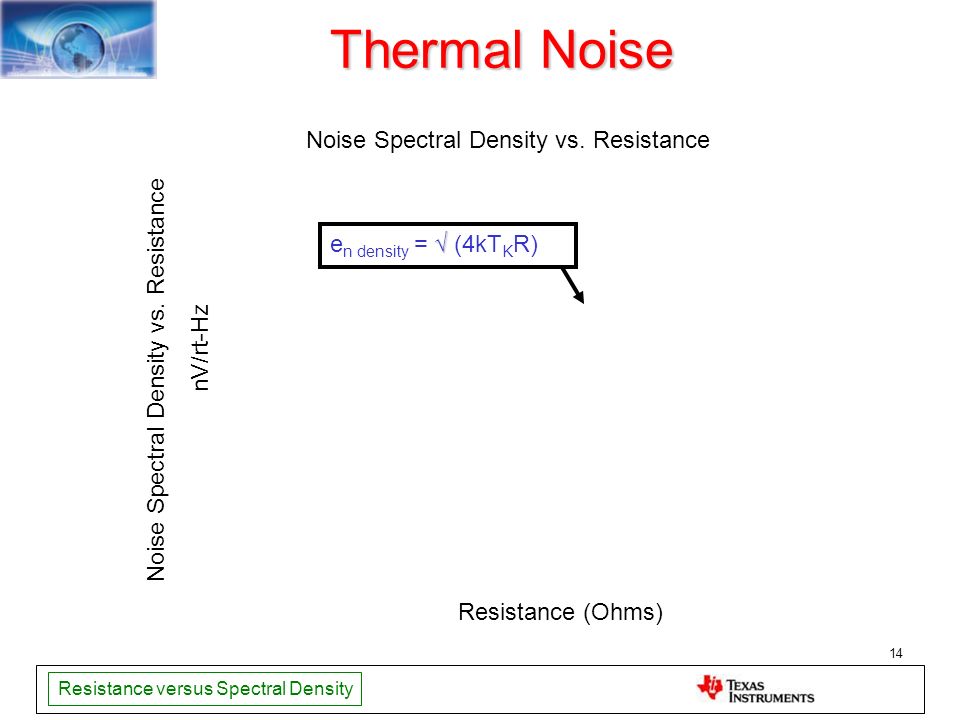The equation given above assumes that thermal noise has a uniform distribution of power through the bandwidth δf.
Thermal noise floor formula.
Thermal noise power and voltage equation.
To calculate the thermal noise levels there are formulas or equations that are relatively straightforward.
The noise resulting from thermal agitation of electrons is referred as thermal noise.
If you look at the formula for the thermal noise bandwidth you ll find that thermal noise fluctuations are proportional to the square root of temperature.
In particular it limits the sensitivity of radio receivers because there is a noise floor below which it is not possible.
Noise power is based on the thermal noise power at the input of the system along with system gain and noise figure where multiply by 1000 to obtain milliwatts and then convert to dbm units.
In case two impedances z 1 and z 2 with resistive components r 1 and r 2 are in series at the same temperature the square of the resulting root mean square voltage is the sum of the squares of the root mean square noise voltages generated in z and z 2.
Everything rf has the largest selection of online calculators for the rf and microwave industry.
Thermal noise is effectively white noise and extends over a very wide spectrum.
Just enter the value and click calculate.
Or factoring out the 1000.
The imaginary part does not generate noise.
Thermal noise spectrum is gaussian in shape.
Following equation or formula is used for thermal noise power and voltage calculator.
This is an online calculator that calculates thermal noise power based on temperature and bandwidth.
Johnson nyquist noise thermal noise johnson noise or nyquist noise is the electronic noise generated by the thermal agitation of the charge carriers usually the electrons inside an electrical conductor at equilibrium which happens regardless of any applied voltage thermal noise is present in all electrical circuits and in sensitive electronic equipment such as radio receivers can.
Any noise source that is more intense than thermal noise floor will sit above the thermal noise floor and can be easily seen in a spectrum analyzer measurement.
It is measured in noise power units of dbm or watt or noise voltage.
In addition to this there is an online calculator to provide additional assistance.

